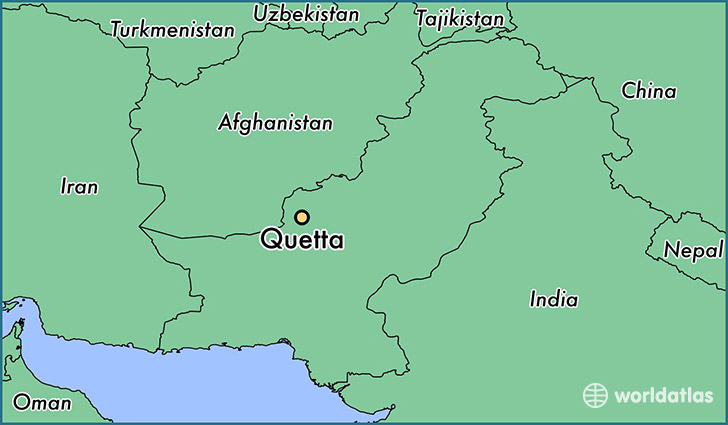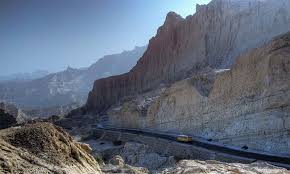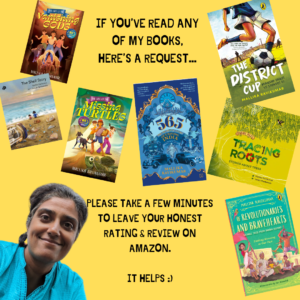“The narrow mountain passes concealed the hideouts of tribal raiders, inaccessible to outsiders. In the waning light he imagined lurking shadows behind every jagged crack and bolder. But it was not a fantasy after all. The horseman whom they had failed to notice had tracked them over the mountains and swooped down on the bus from the mountain passages. Rifles pointed at the passengers, they commanded them to dismount and hand over their money and belongings.
“Hindus this side, Muslims there,” ordered one, nudging them with his gun….“
One often reads about Partition stories from Punjab and Bengal. Rarely does one here a personal story of migration from the frontiers near Afghanistan. From Quetta to Delhi : A partition story by Reena Nanda, (published by Bloomsbury, 2018) tells the personal saga of Shakunt Nanda nee Malik (the author’s mother) whose family lived in Baluchistan before forcibly moving to Delhi in 1947. Few books I have read are set in these rugged mountains sandwiched between Pakistan and Afghanistan. The setting, cold and barren, makes for an appropriate backdrop to the story.

A Sweeping Saga
With a brief introduction to the terrain of Baluchistan and its demography, the author goes headlong into the evening of 14th August, 1947, the day Pakistan was born. Her grandfather, Sawan Mal Malik, a Punjabi Hindu, had decided to stay back in Baluchistan after Partition to serve the new Government of Pakistan. He didn’t see any reason to leave. Earlier that day, he had joined several others in saluting the Pakistani flag and they had all gathered for a grand dinner at the Brown Gymkhana Club to celebrate the momentous day.
Baluchistan had had no record of religious confrontation, unlike Punjab and the Northwest Frontier Province. Appeals made by Nehru and Gandhi, based on Jinnah’s assurances had given people a false sense of security. Sawan Mal, like many others, believed he was safe and accepted Pakistan as his country. That very night, his faith was to be shattered.
Moving on, the Muslim League began instigating locals who had lived in peace with their Hindus and Sikh neighbours for years. The area that had not witnessed any Hindu-Muslim conflict saw a sudden spurt in violence. Giving-in to requests from his son-in-law, posted then at the Army headquarters in Delhi, Sawan Mal agreed to send his wife, daughter and granddaughter to Delhi. He refused to leave.
As Shakunt left Quetta, the house-help wept “Why are you leaving your country? This is your homeland!” Running to break a branch of fresh green pistachio, he handed it to her saying “Every year I will send you these.”
“Nonsense!” her father snapped, “They will be back in a few months.”
They never returned.
The story traces the roots of the family in Punjab to their move to Quetta, through the suffering during the massive Quetta Earthquake of 1935 forcing them to move again and finally the tragic migration during Partition.
The narrative is interwoven with the lyrics of Punjabi folksongs and verses from prayers. One also finds plenty of references to traditional Punjabi practices, culinary habits and way of life.
Riches to Refugees
Once the family moves to Delhi, reality hits them hard. The author gives readers a snapshot of their lives as refugees in Delhi. Here’s an interesting extract that shows the often-unseen psychological wounds of the refugees, which bordered on mania. Speaking of her grandmother’s trauma, she says…
“As soon as my grandfather left Pakistan and it dawned on Maanji that she could no not go back to Quetta, all hell broke loose. She unleashed a fury of abuses at the world in general and her husband in particular.. Cooped in a small flat on the 1st floor, she loathed her neighbours who “polluted” the common staircase. She threw buckets of water from the top of the landing, causing the other inmates to slip on the stairs. Trapped in a hopeless situation, her frustration led to a severe adjustment disorder, bordering on madness.
“In Quetta’s veda (courtyard), the cooking platform was in a separate corner. It was Maanji’s own sacred space, unpolluted by the sweeper woman, servants and outsiders. In the tiny house in Delhi, the cooking chulha impinged on the rear door of the courtyard, which was used by everyone…Maanji was in a constant state of frenzied war with them for fouling up her kitchen. In the altered social order, they naturally retaliated, and fiery duels ensued. Maanji developed a neurosis about servants and pollution that was beyond reason. She would only weep and beat her breasts crying “Hai…mera Quetta!”If grandfather intervened, she turned on him in fury, blaming him for the loss of her home where she had been a queen. Unable to make sense of a new life Maanji descended into a neurotic wreck, at war with the world.”
One can imagine the mental trauma and physical adjustments refugees had to make, often driving them to the brink of insanity. Casualties and numbers can never tell us the human side and suffering of those who didn’t lose their lives, loved ones or limbs, but who lost their mental equilibrium and will to live.

Why were people angry with Gandhi?
Another interesting snapshot we get is about the prayer meetings held by Gandhi in Delhi. One often wonders why so much anger was directed at him towards the end of the days of the Raj – for so much of what he said made sense. But this interesting excerpt helps us to see why…
“In October, when Gandhiji took up residence at the nearby Birla house on Albuquerque Road and commenced his daily evening prayer meetings, Maanji was regularly in attendance. Her daughters accompanied her whenever they were able to.
“A significant part of Mahatma Gandhi’s audience consisted of the Punjabi refugees who had survived appalling massacres and other horrors during their migration to Delhi. Despite their respect for him, there was a seething anger in many … Pandit Ranjit Lal had been in the refugee evacuation train from Rawalpindi. The train was halted at Gujranwala, and the hapless refugees waited the whole night in fear and terror. Early the next morning, a mob arrived, accompanied by the police, and opened fire on them, killing his wife, daughter-in-law, and their children. When the train arrived in Amritsar, only 1000 of the original 4500 refugees were still alive….
It was these emotionally disturbed and tormented souls whom Gandhi admonished saying they should not have abandoned their homes in fear. He exhorted them to be fearless, to learn to die bravely and to forget about police or military protection, for no power could defend people work hours. To the grieving Punjabis trying to forget the dead, this was like rubbing salt into their wounds. Remembering their wives, daughters, and sisters who they had killed with their own hands to save them from rape, they were appalled and hurt by Gandhiji’s sermons.”
The author also recalls that fateful day of 30th January when Gandhi was assassinated. Her grandmother was at the prayer meeting and she recalls how the whole family had climbed onto a rooftop of a neighbouring house to get a view of Mahatma Gandhi’s body. Her father was relieved to find out that the assassin was neither a Punjabi nor a Muslim.
Afterword…
As a parting note in the Afterword, the author writes…
“Historians are correct in claiming that memory is selective. Each refugee had differing, individual experiences, multi-layered and even contradictory. The point is what they chose to remember narratives of violence and brutality of love and humanity. Both are valid. I can never forget my mother’s distress as she flung at me some books of interviews of partition refugees. “Then everyone was silent, we wanted to forget. What is the use of reopening old wounds and spreading hatred.” My mother did not want to remember the past by privileging memories of violence over other happier times. Indeed, refugees on both sides showed wisdom in trying to forget the sufferings and rebuild their lives. Perhaps in forgetting they also forgive?
From Quetta to Delhi : : A partition story – a book I’d recommend to anyone wanting to know more about the human side of Partition, the unique case of a Punjabi family in Baluchistan and anyone interested to read a personal narrative of a historical event.

Kalpana
September 2, 2019 - 2:23 pm ·Thanks a lot Mallika for sharing about this book. Would definitely read this book.